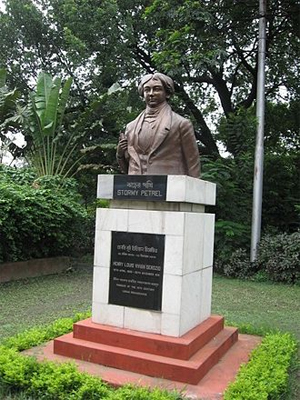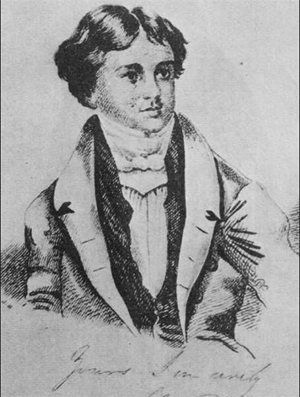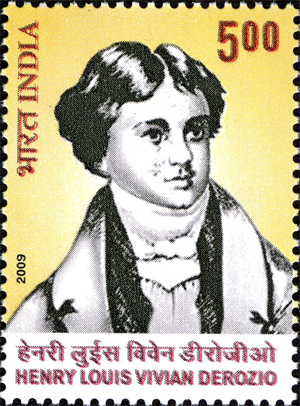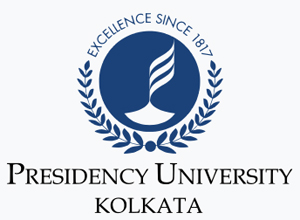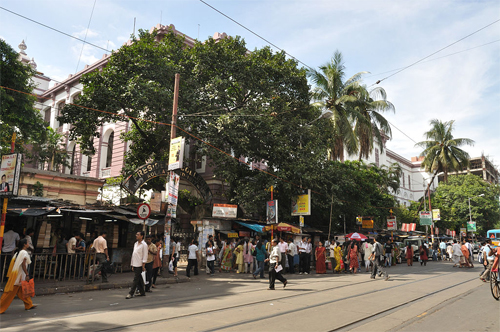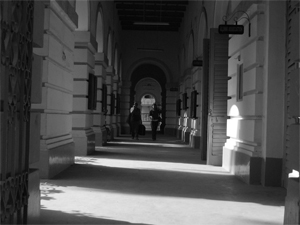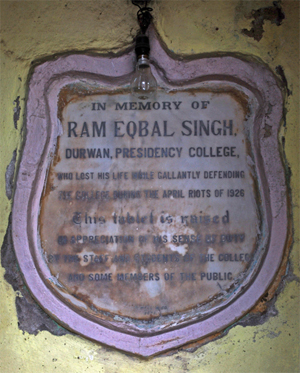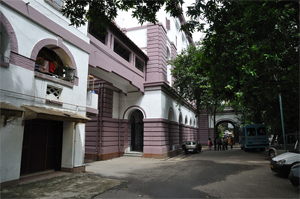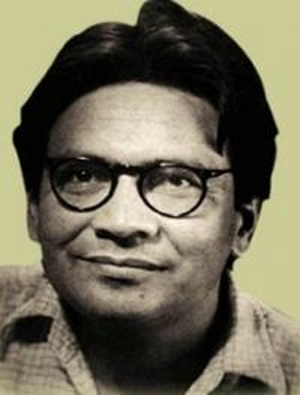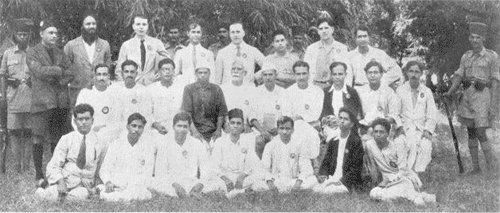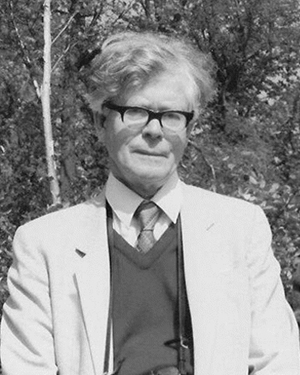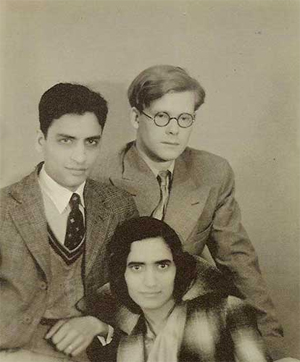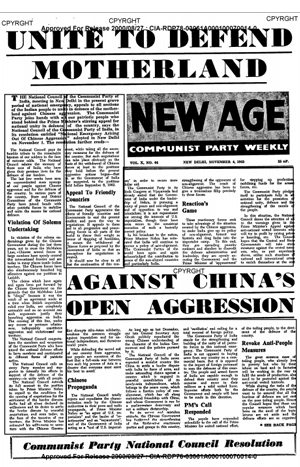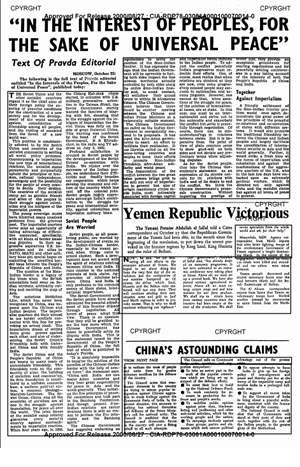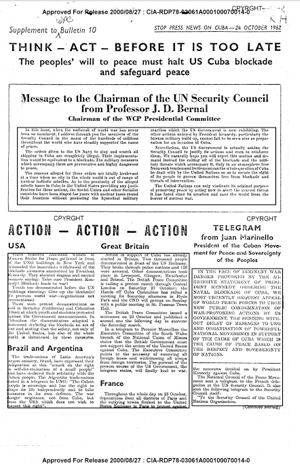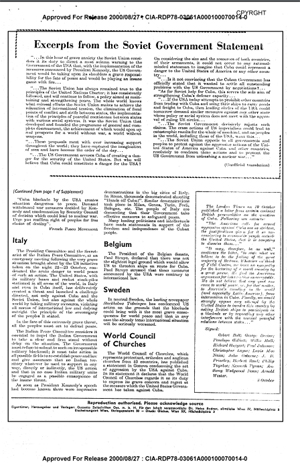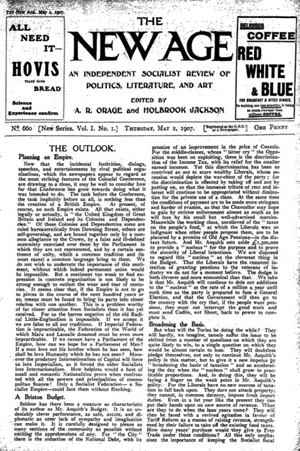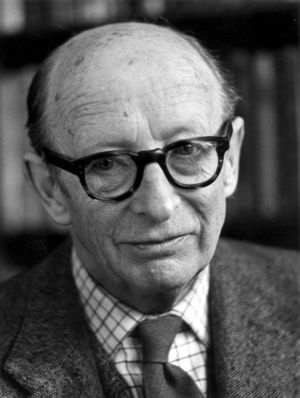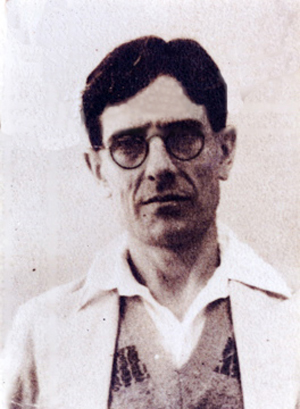[Victor Gordon] Kiernan: British Historian of Imperialismby Bhupendra Yadav
(Parts of this essay were published as ‘Kiernan: Historian of Imperialism’ in Economic and Political Weekly, Vol. XLIV, No. 24, June 13, 2009: 26-29)
12/10/09
A few weeks after Freda emerged from Lahore jail, the war took a turn which had direct repercussions for both her and her husband. Hitler launched Operation Barbarossa in June 1941 and attacked the Soviet Union, his erstwhile ally. Communist parties which had already carried out one contortion when the Molotov-Ribbentrop pact became public knowledge and changed overnight from describing the conflict as a war against fascism to an imperialist war were again wrong-footed. The British party quickly fell in line with Moscow and came to hail a people's war which needed to be prosecuted zealously, not least to protect Soviet communism from the Nazi aggressor. The Indian party was slower to respond to the changing contours of the conflict -- in part because of a reluctance to make common cause with the Imperial power, and in part because the detention of so many leading left-wingers hampered debate and decision making. By the close of 1941, Indian communists were coming to accept the need to support the allied war effort against Germany and Japan. In April 1942, the communists confirmed their change of strategy, and so decided to support the war and all it entailed. Three months later, the Communist Party of India was legalised. This support for the prosecution of the war was not a popular move in India. 'It alienated us completely from the national movement ... ' Bedi recalled, 'but at the same time the conviction was so deep that anti-fascism struggle had to be carried on.' It also sharpened the distinction between communists and other progressive strands of nationalism. In August 1942, Congress launched the Quit India agitation which placed achieving independence ahead of fighting Germany and Japan, and which also entailed the detention of most Congress leaders for the remainder of the war; in that same month, the more radical nationalists led by Subhas Bose established the Indian National Army to fight alongside the Japanese in an attempt to evict Britain from India. The communists stood aloof from both endeavours.
Towards the close of 1941, a Friends of the Soviet Union association was established in Calcutta. Freda Bedi promptly took to the platform to endorse the campaign... 'The spirit that animates Russia in her magnificent resistance to Nazi barbarism will never die,' she told a students' conference at Lahore's Bradlaugh Hall at the end of November. She read a telegram from Bedi sent from Deoli, and passed by the censors there so in a sense approved by the British authorities: "'Convey students glowing greetings towards peace and progress through vigorously functioning Punjab Friends of Soviet.''' Within weeks, the new association had established a regional organisation in Punjab and Freda became the provincial organiser. It was the most prominent position she took in Indian politics, ... she had a standing and reputation which helped the pro-Soviet, anti-Nazi, message percolate beyond the immediate ranks of the still underground CPI and its supporters....she was an exceptional organiser as well as an accomplished orator.
The British communist intellectual Victor Kiernan was in Lahore at this time and regarded Freda highly, considering that she was 'emerging as one of the most effective of a new generation of Party leaders'....No meeting was held in Lahore those days where Bedi did not speak or Freda Bedi did not speak....
'Our platform is non-party,' Freda insisted, not entirely convincingly, when seeking support for the initial conference of the Punjab section of the Friends of the Soviet Union, 'and the object of the organisation is to draw together all those who sympathise with the Soviets in their epic struggle against the Nazi hordes, whether on cultural, political or humanitarian ground.' On another occasion she spoke of the Second World War as an 'international civil war' and asserted that 'it is to Russia that the poor and neglected of the world look'.
-- The Lives of Freda: The Political, Spiritual and Personal Journeys of Freda Bedi, by Andrew Whitehead
Victor Gordon Kiernan (1913-2009) died of heart failure on 17th February 2009 at the ripe age of 95. We remember Kiernan fondly in South Asia not because he was one of the founders of the Historians’ Group of Communist Party of Great Britain (hereafter Historians’ Group) or because he was a Professor Emeritus of History at Edinburgh University (Scotland). In Edinburgh University, Kiernan inspired students like Prakash Karat, General Secretary of CPM and Dr James Gordon Brown (1951-), present Prime Minister of UK. Karat tried to repay his gratitude by editing a Festschrift entitled Across Centuries and Continents on the 90th birthday of Kiernan. Brown, who was a student of the History Department of Edinburgh University, reportedly edited The Red Paper on Scotland in 1975 with help from Kiernan. All this is important but not of pressing consequence to us here and now.
Owen Dudley Edwards edited the first Festschrift presented to Kiernan on his retirement in 1977. In his tribute to Kiernan, Edwards called him ‘a devoted scholar, a kindly teacher, an austere lecturer, an inspirational companion and a passionate anti-imperialist.’ (February 20, 2009 in News.Scotsman.com.) In our estimate, Kiernan was both a Marxist historian and a scholar with eclectic interests. The ‘linguistic turn’ in social sciences and new cultural history passed Kiernan by, without even so much as an appreciative nod from Kiernan. The history of gender relations and environmental degradation did not interest Kiernan in any sustained way either. This makes Kiernan a chip of the same old ideological block. However, Kiernan made a unique contribution and had his distinct niche in Marxist historical writing. He studied the relationship of imperialism with society, in Europe and outside. He was interested in knowing what imperialism meant for its victims and which attitudes shaped it in the metropolis. When Kiernan wrote on Europe, it was with the regret that it had ‘imposed so much of itself and its discordance on the world’. (Kiernan (1980): ix.)
Kiernan’s scholarship was formidable but his personality was endearing. In his message at the Memorial service for Kiernan, Hobsbawm declared that the life of Kiernan confirmed that goodness, honesty and virtue are still found in the world. In 1986, Christopher Hill (1910-2003) dedicated Volume Two of his Collected Essays (featuring Religion and Politics in 17th Century England) to Kiernan. The dedication said “For Victor Kiernan – wit, provocateur and generous friend for fifty years.” (Hill (1986).) Before we proceed let us see the following example of Kiernan’s wit. In State and Society in Europe, 1550-1650, Kiernan observed that while Chinese magistrates were chosen for their learning and Turk officials, from the Sultan down, learned some useful occupation, the Badge of Gentry in Europe was idleness and hypochondria because upper classes ‘did not know how to spend their time’. Consequently, Kiernan inferred that ‘nine tenths of Europe (meaning peasants and artisans) was being steeped in misery in order that the other tenth (the Gentry and the feudal lords) might be miserable’. (Kiernan (1980: 260.)
Kiernan was a part of the Historian’s Group but his interests were different. For us, ex-colonial subjects of Britain, Kiernan is important because we were important to him. We, victims of imperialism, occupied a large part of his work. Kiernan spent eight precious years of his youth (1938-46) in Lahore, his first marriage was with the danseuse, Shanta Kalidas Gandhi (1917-2002), and he was a multi-lingual Marxist historian who took imperialism more seriously than his ilk. Kiernan blazed a trail of research on cultural imperialism with his The Lords of Human Kind (1969). Edward Said, the famous literary critic and linguist, systematically followed this theme later. Said’s legendary book Orientalism (1978) has just about two references to Kiernan but Said accepts gratefully Kiernan’s characterisation of Orientalism as ‘Europe’s collective day-dream of the Orient’. (Said (1978): 52.)
Kiernan was born on 4th September 1913 in a lower middle-class family. Apart from English, he picked Spanish and Portuguese at home because his father worked as a translator in the Manchester Canal company. He learnt Greek and Latin in the Grammar School at Manchester. Kiernan was multi-lingual before he joined Trinity College, Cambridge for his graduation (1931-6) in History. He worked there later as a Fellow in two tenures, viz. 1936-8 and 1946-8. Remembering his academic and political life then, Kiernan wrote poetically (Kiernan (1974b): 24):
…Doubtless the youthful world we inhabited contained, like all others, regions of illusion and self-deception, over which Saharas have long since crept. Much nevertheless is left from that time of common endeavour and common hope that few of the survivors would willingly forget.
Kiernan is survived only by his wife, Heather Massey – a Canadian academic. Kiernan’s book The Duel in European History: Honour and Reign of Aristocracy (1988) was dedicated to Heather. Both married in 1984 when Kiernan was 70 years old. Kiernan was married earlier to an Indian, Shanta Kalidas Gandhi (1917-2002), in 1938. Shanta was a friend and contemporary of Indira Gandhi. Both were studying in England when Indira fell in love with Feroze and Shanta met Kiernan. Kiernan famously followed Shanta to India. The highpoint of their whirlwind romance was marriage at the Bombay railway station, just when Kiernan was boarding a train to join his Lectureship at Sikh National College, Lahore. Kiernan later shifted to Aitchison College also in Lahore. His love for Urdu and Persian literature and friendship with Faiz Ahmed Faiz also started in Lahore. The marriage with Shanta ended in divorce in 1946 where after the lady went on to join Uday Shankar’s Dance School in Almora and Kiernan travelled back to his work as Fellow in Trinity College, Cambridge. (Kapur Chishti (2005))
The firm Marxist commitments of Kiernan came in the way when he was looking for a regular teaching assignment. He was refused jobs in the leading institutions because his own referees wrote something which did not endear him to the educational establishment in Oxford and Cambridge University. Finally, he joined the History Department in Edinburgh University in 1948 and retired from there in 1977. Speaking of Kiernan, Geoff Eley says (Eley (2005): 28):
..(Apart from Hobsbawm) Kiernan was also a true polymath, publishing widely on aspects of imperialism, early modern state formation, and the history of the aristocratic duel, as well as British relations with China and the Spanish Revolution of 1854, with an imposing wider bibliography of essays on an extraordinary range of subjects.
Dissident with a differenceHistorians, as a vocational group, have not been keen to generalize their findings and this has led history to be classified as an ideographic social science as compared to sociology which is nomothetic. Consequently, most historians are net consumers of social theory produced by scholars in other disciplines. It is only two historians who reportedly contributed concepts to social theory, viz. E.P. Thompson (1924-93) who gave us the concept of ‘moral economy’ and E.J. Hobsbawm (born 1917) who helped create the concept of ‘invention of tradition’. (Peter Burke (1992): 1- 2.) Coincidentally, both the aforementioned innovative historians were Marxists by persuasion and British by descent. They, along with several others, were the leading lights of the Historians’ Group. Most members of this Group were Euro-centric. Some among them (like Maurice Dobb(1900-76)) highlighted the class relations perspective in the debate about the transition from feudalism to capitalism. Others (like Eric Hobsbawm) celebrated the peasant resistance to capitalist transformation by calling them ‘social bandits’ because Robin hood robbed the rich, distributed the booty among the poor and never killed except in just revenge. Still others (like E.P. Thompson) pioneered ‘history from below’ by letting workers to speak for themselves and thereby, save them from the ‘condescension of posterity’. Kiernan was a part of this group. He said that Marx gave him ‘tentative and fragmentary information on the past’ and he learnt from historians with a ‘Marxian outlook’. But, he added, students of the past must grope among approximations because sometimes the solid ground of interpretations dissolves before her ‘from a chaotic pile to mere nebulosity’. ‘Then history-writing becomes a struggle to chart a phantasmagorical cloud-procession, or build with mists and vapours instead of bricks and mortars.’ (Kiernan (1980): ix-x.)
The good thing about Kiernan is that he is as open as Thompson when it came to intra-left ideological and political problems. He is, however, less celebrated than Thompson because Kiernan was a trifle less polemical, more focussed on historical themes, less spread-out on other agendas like pacificism and could not earn the halo Thompson did as a ‘public intellectual’. Harvey J. Kaye left Kiernan out from his seminal book The British Marxist Historians (1984) but more than compensated for it by editing and writing an introduction to History Classes and Nation-states: Selected Writings of V.G. Kiernan (1988). He noted that all the British Marxist historians were creating the ‘historical aesthete’. But while others (like Rodney Hilton (1916-2002), Christopher Hill (1910-2003), Eric Hobsbawm, George Rude (1910-93) and Edward Thompson (1924-93)) were primarily strategists of socialist politics ‘fanning the spark of hope’, Kiernan’s vision of history was tragic. He reminded us that the ‘the enemy (the ruling class) has not ceased to be victorious’ with the triumph of capitalism. (Harvey J. Kaye (1988): 27.) Kiernan was convinced that the losers of history will not be safe even after they are dead. The losers will not be left alone by the victorious ruling class; they will be systematically misrepresented in history. Therefore, it was on behalf of the losers that Kiernan took up cudgels in his life and work.
The association of Kiernan with the Communist Party of Great Britain (CPGB) lasted twenty-five years. He joined the Left party in 1934 at Cambridge and left it in 1959. He was appalled that CPGB was in the habit of shielding USSR from real and imagined capitalist onslaught, like the one in 1918. Kiernan thought that the party grew in public esteem and organisational membership when it took an independent stand against Spanish Fascism, Mosley at home and the misery caused by unemployment. Writing in London Review of Books (September 17, 1998), Kiernan said that he was disappointed at the Party’s paralytic response to the Soviet invasion of Hungary in 1956 and a report of the three member committee (one member out of which was fellow historian Christopher Hill) that there was no democracy in the organisation. Most of his Comrades in Edinburgh joined the Labour party, one or two became Trotskyites, one turned into a supporter of Maoism but Kiernan ‘lingered inactively for three years’ ‘waiting in the hope that the party might improve’. But when it did not, from 1959 Kiernan decided to be a ‘one-man party of liberal-Marxist principles’.
During his membership of CPGB, Kiernan was engaged with the communist underground in India between 1938 and 1946. In September 1938, he carried a ‘lengthy document from the Communist International’ which said that Moscow was seeking a collective security agreement with Britain and hence, was unable to campaign for the legalization of Communist Party of India (CPI). He met PC Joshi secretly, after disguising himself by shaving off his moustache, in the lounge of the Prince of Wales Museum at Mumbai (then Bombay). The first time Kiernan went to a secret meeting of the CPI he was made to wait for half an hour outside a cinema in an Indian area and to cover up his loitering he knew of no better thing than ‘keep tying a shoelace’. (Kiernan (1987): 61- 2.) Apparently, the cell-phone serves much the same purpose these days!
For most of the period he was in India, Kiernan was in Punjab which he describes as ‘a backwoods province run for the British and for themselves by a coalition of landowners called the Unionist Party’. During the wartime, CPI grew because it took up mass grievances like housing shortage/ high rentals in Lahore, Punjab’s capital; scarcity of commodities and inflation in prices; and shortage of food-grains. The Punjab unit of Friends of Soviet Union was formed with Freda Bedi, the mother of cine-star Kabir Bedi, as provincial organiser in Punjab. Kiernan wrote a letter calling for opening official/ academic contacts with USSR and it was published in The Tribune on 20 September 1942. A humorous incident took place when the Commissioner called up Kiernan to loan a Russian flag for hoisting at the victory celebrations, after the War. (Kiernan (1987): 63, 69-70.) The Punjab unit of Friends of Soviet Union or Kiernan did not have a Russian flag to loan the Government for celebrating the victory of allies over fascism!
Kiernan was just an onlooker of the political goings on in India who also managed to play a small role in them. He found many splendid qualities among the CPI comrades but he was exasperated at the ‘wooden dogmatism, bureaucratism and aggressive national self-esteem’ in the party. Most of the party members were talented, educated people and some of them belonged to rich, elitist families. Yet, at the party ‘commune’ in Andheri at Mumbai, the whole-timers, lived on a monthly wage of Five rupees, ‘slept on thin mats on hard floors’, ‘ate sparse meals sitting in rows on the ground’ and used a foul-smelling latrine to ease themselves. Despite facing these odds while visiting them, Kiernan declared, ‘Living and working among them was on the whole the most exhilarating experience of my life.’ (Kiernan (1987): 67-68.) Such admirable sacrifice and self-effacing simplicity was the hallmark of the life of the men and sprinkling of women, veterans and beginners, plebeians and aristocrats, Hindus and Muslims, poets, writers, activists and leaders of CPI.
The way CPI worked was exasperating, says Kiernan. There was little room for discussion because the theory came from Marx and the party-line from the top. Hence, Kiernan did not hear even once a point of theory being discussed in the eight years he was in India. Kiernan noticed that young intellectuals were recruited by CPI but they either wore out quickly or turned into party hacks. To counter the self-assumed anarchic Indian national temperament, seriousness was imposed on CPI members in schoolmasterly ways. ‘At Lahore at one stage all members were called on to fill in weekly time-table details of how every hour of each day had been employed.’ Consequently, communists thought of themselves as practical men with no time for idle chatter or interest in cultivating a sense of humour. Kiernan records that ‘I used to make up limericks, on topical subjects, for the wall-newspaper, and as a connoisseur of this genre was disappointed to find that only the least subtle were applauded.’ (Kiernan (1987: 66 & 68.)
Kiernan was clear that the stand Indian nationalists took against the Second World War was sounder than the vacillation communists showed during this period. In his entry on ‘Nationalism’ in A Dictionary of Marxist Thought, Kiernan wrote that Marx and Engels under-estimated nationalism because they were German immigrants living outside and they were internationalists out to unite the workers of the world! He appreciated that the Third Communist International supported colonial liberation movements. Kiernan also admired the Chinese and Vietnamese communists for blending their socialism with nationalism and backing this clearer theory with a better organisation to carry the day in the politics of their respective countries. But, he regretted, the Indian communists missed the bus due to their indecisiveness towards the on-going national movement. Kiernan wrote (Bottomore et al eds. (1983): 349):
…(Communists won in China and Vietnam but) India was an exception; there, with the Western connection so old, and political activity tolerated, a national movement on liberal lines had a long start. There were chronic debates among Indian Marxists as to whether they should collaborate with it, and on what terms; their failure to gain more ground owed much to their seeming to stand aloof from the national struggle.
Understanding Imperialism culturallyIn 1999, Encyclopaedia of Historians and Historical Writing classified Kiernan as the ‘British historian of Imperialism’. After his death, Tariq Ali called Kiernan a ‘Marxist historian, writer and linguist who challenged the tenets of Imperialism’. (The Independent, February 20, 2009) Eric Hobsbawm captioned his obituary of Kiernan as ‘Historian with a global vision of Empires, Marxism, Politics and Poetry’. (The Guardian, February 18, 2009). In a memorial service at Edinburgh on February 28, 2009, the message of Hobsbawm proclaimed, ‘If God were to ask me for a good deed entitling me to admission in Heaven, I would say ‘I knew there was only one man capable of writing The Lords of Human Kind and I got him to write it.’ (John Trumpbour, “V.G. Kiernan: Historian of Humankind,” The Nation, March 2, 2009.)
The word imperialism, as we know, is derived from Empire and was first used in France in the 1830s. This term was popularized by journalists of Europe in the 1890s, after the Partition of Africa. An empire could be defined as a political system in which authority is vested in an emperor, like say the Roman Empire, in India, China etc. Empire is now most often used for the lands brought under the control of various European powers after 1500 CE. There can be situations of informal empire when one state controls another without claiming sovereignty over it, like say the British control over China in the 19th century. There can also be situations of cultural imperialism where control is exercised without political domination about which Edward Said has written and we see around us in the ‘Macdonald-isation’ of middle class culture. There can be neo-colonialism where imperial influence is perpetuated in nominally independent countries. Kiernan was interested in all these forms of imperialism.
Kiernan came from a family which was devoted to the empire. One of his brothers was called Edward after Edward VII and another Gordon after General Gordon of Khartoum. Victor, his own first name, was from Queen Victoria (Owen Dudley Edwards (2009), “Kiernan: Historian of Human Kind”, News. Scotsman.com, February 20, 2009.) It is, therefore, strange that Kiernan rebelled against the family heritage by becoming a critic of the British Empire quite early in his life. His earliest study of the British Empire was Metcalfe’s Mission to Lahore, 1808-1809. Kiernan thought the outcome of the diplomatic offensive, called Mission of Charles T. Metcalf to Ranjit Singh in 1808-1809, was a ‘small meal for imperialism’. The Mission helped British troops move from Yamuna (and territories around Delhi occupied in 1803) to 200 kilometres West up to the Sutlej, just six years later. Such expansion was matched by the ill-will among the parties concerned. Kiernan noted (Kiernan (1943, 1971 reprint): 109-110):
…All Englishmen of his (Metcalfe’s) time underrated all Sikhs: with some excuse, for they came in touch with the robber barons, not with the newly-emerged democracy, and knew very little of its religion or its outlook. “In my long acquaintance with mankind,” wrote Ochterlony, “I have never seen a race so strongly characterised by an almost brutal ignorance, selfish depravity, shameless falsehood, unprincipled cunning and a suspicion so excessive that even benefits must be long felt before they are received as unconnected with some sinister design.”
(Colonel Ochterlony was put in command of an expeditionary force to advance up to the Sutlej and even handled diplomatic parleys in the absence of Metcalf. Kiernan (1943): 32 & 82.)
Some scholars have undertaken intensive studies on the economic force driving imperialism and its effects (Peter J. Cain and Anthony G. Hopkins (1993). Some other scholars have been happy exploring the political and strategic compulsions behind imperialist expansion (William Roger Louis ed. (1976).) The cultural and psychological effects of imperialism were studied first in Francophone Africa in the late 1950s. Frantz Fanon was the first to note cultural domination and he said that imperialists did not only economically exploit and politically oppress their colonial subjects. Imperialism destroyed the consciousness of the history and culture among colonized people. The colonial subjects were stripped of their identity and represented in ways that made them more vulnerable to their new masters, said Fanon. Amilcar Cabral noted that the cultural loss of colonial subjects led to two responses, viz. a tame acceptance of the colonial stereotypes and a resistance to cultural domination by a return to the source.
Imperialism of the British variety ruled India and while the West was enriching itself since 1500, we were undergoing a phenomenon Andre Gunder Frank called ‘the development of underdevelopment’. In the popular perception, however, British colonialism is still considered a blessing. Protesting the indifference in the upkeep of old statues of British colonialists, Khushwant Singh, the doyen among Indian journalists, wrote in his column, “With Malice Towards One and All” (Hindustan Times, 14 March 2009):
While glorifying our freedom movement, we harped on the racist-colonial aspect of British rule. We erased from our memory the good they did. Ruling over the entire country, they made us conscious of being one people, Indians. We forgot our racial, religious and linguistic divisions and came closer to each other. The British introduced democratic institutions in the country: elected municipalities, legislatures including the Parliament. They gave us our judicial system, civil and criminal laws. They gave us the telegraph, railways, canals and roads. They gave us New Delhi, one of the most beautiful and greenest capitals of the world. There was more respect for law and order in the British days than there is today. And they left the country in good grace…
To such simplistic understanding of imperialism Kiernan may have responded sharply. Kiernan called the conquest and occupation of the world by Europeans as a very painful era; it was ‘old-style surgery without anaesthetics’, he said. When some Marxists thought this conquest harbingered progress in Asia and Africa, Kiernan said the real contribution of European imperialism ‘was made less by imposing its rule on others than by teaching others how to resist it’. (Kiernan and Kaye (1988): 16.) Kiernan endorsed the belief of Renan that a nation was both a memory and a purpose. Nationalism in the 20th century in Asia, he said, was a constructive force and spread, like communism, due the search of ‘bewildered multitudes for new ideals’. Created by the educated professionals, Indian nationalism got teeth with the support of urban middle strata, like petty traders, discontented clerks, swarms of lawyers and students anxious about their future. Gandhiji was acknowledged to be the personification of ‘united front’ of Indians against their colonial adversary. (Kiernan and Kaye (1988): 139 &155). Gandhi, said Kiernan (ibid: 159):
… worked out a philosophy to meet the needs of a country striving towards advance, but still entangled in the past and all its ways. It diluted cautious reformism with old-world religious views: it allowed conservatives to be mildly progressive, and restrained radicals from being too progressive. It admitted that India must fit itself for Independence by some degree of social reconstruction for the benefit of the underprivileged, including women and Untouchables, but insisted that traditional Indian life and thought contained treasures not known to the materialistic West. Under Gandhian tuition, in short, a hesitant India could take up its bed and walk without having to feel that it was leaving home.
The Lords of Human Kind: European Attitudes towards the outside world in the Imperial Age (1969) was not the first book by Kiernan. Apart from a number of historical research articles, he had already published two books on diplomatic history, viz. British Diplomacy in China, 1880-1885 (1939) and Metcalfe’s Mission to Lahore, 1808-1809 (1943). With The Lords of the Human Kind, however, Kiernan graduated to a large canvas and big themes. Apart from research articles on specific themes, he started writing books on such general themes like Marxism and Imperialism (1974), America: The New Imperialism (1978) and European Empires from Conquest to Collapse, 1815-1960 (1982). In the world of scholars, Kiernan came to be taken seriously after his The Lords of Human Kind. Incidentally, Kiernan dedicated The Lords of Human Kind to his friend Nazir Ahmad ‘lately Principal, Government College, Lahore in memory of excursions east and west’. The title of this book was taken by Kiernan from the following lines in Oliver Goldsmith’s poem The Traveller (1765):
Pride in their port, defiance in their eye,
I see the lords of human kind pass by.
European civil servants, explorers, archaeologists, educationists, missionaries, profiteers, mercenaries and even convicts descended on the outside world in the Imperial Age. The Lords of Human Kind was a survey of European attitudes ranging from paternalistic, censorious, acquisitive, conscientious, righteous and condescending towards the ‘inferior races’. The Europeans felt moral outrage at the sight of mixed bathing in Japan (pp. 180-1); they were bewildered at the sight of Chinese who invented the gunpowder but used it only in celebrations as fireworks (pp. 171- 2); they had mixed feelings towards the amorous freedom among Tahitian women (pp. 244-5); and they were savage-like in repressing the rebellions, like the one by Chinese Boxers and the Indians in 1857.
Europe, after its heyday in Greek and Roman times when others in the east were called ‘barbarians’, had to start from a low cultural level in the Middle Ages (Kiernan (1969): 4). Seafarers like Columbus in 1492 and Vasco de gamma in 1498 found lands far from Europe. Interest in the outside world was nourished by tales of travellers, reports of missionaries and other accounts from Spanish colonies. Defoe gave matter-of-fact travelogues but Shakespeare’s Othello narrated cock-and-bull stories to Desdemona about the outside world (ibid: 16). Gulliver was a satire on how Europeans looked at or behaved with others. The sources, Kiernan said, of The Lords of Human Kind ‘are a random mixture of miscellaneous readings, unpublished British and French diplomatic records, conversations with many people from many lands and literature, predominantly English’.
Out of the 14 sovereign states in Europe in 1914, eight had colonies and Spain had just lost theirs few decades ago. The Europeans may have been moving from ‘compulsion to assent’ in organising their own social system but they were conducting themselves in the opposite spirit abroad. Ultimately, this cost the Europeans themselves quite dearly. More than just friendships and goodwill were lost by Europeans around the world. For instance, more lives were lost in World War I because people like Colonel G.B. Malleson suppressed the Revolt of 1857 in India and framed the golden rule that the ‘true mode to fight the Asiatics is to move straight on’. Now, faced with machine-guns and barbed wires in Europe, the infantries of combating enemies moved straight on and met certain death in monstrous proportions. These deaths took place in a measure larger than necessary and could be reduced if alternate battle tactics were used to outflank the enemy and then trap it or overpower it. The division of the world into ‘martial’ and ‘non-martial races’ also proved disastrous because it bound European vision less to military tactic and strategy and more to innate might and inherent fervour (Kiernan (1969): 314.)
The colonies were built and kept on a whole edifice of illusions and fanciful convictions. For instance, it was believed by colonialists that India would fall prey to anarchy and invasion without British rule. All sorts of emotions were expressed regarding people from different parts of British colonial Empire but it was thought that all Indians were stuck in the mud of the past. Richard F. Burton said East Indians were ‘the most antipathetical companion to an Englishman’; J.R. Seeley despaired that ‘no one could be more alien to one another than the English and the Hindus’; G.O. Trevelyan said the inner life of Bengalis is a sealed book to us’ etc. It was thought that there was some temperamental affinity of the English with the chivalrous Rajput, sturdy Punjabi and idol-hating Muslim. India’s narrow specialisations of caste and community increased manifold during the colonial rule. Bengalis took to English literature, Parsis to English commercial methods and Panjabis to English bayonets and all three moved much further away from one another than ever before. But, it was emphatically noted that the English did not know ‘the inner and instinctive feelings and modes of thought among large classes of the native community’. (Kiernan (1969): 51 & 69)
In the context of India, two myths Kiernan helped break were about British impartiality and colonial godlike superiority. Kiernan noted that the British administration was known to be expensive and blundering but seldom capricious or prone to favouritism. The reason for this had less to do with belief in equality of rights before law or setting up an ‘administrative machinery dealing impersonally with objective facts’. At home the Europeans were moving from a society based on compulsion to one founded on consent of the ruled. But abroad the tendency was in the opposite direction with W.P. Andrew, a self-proclaimed pacifist, epitomizing the sentiment by saying (in 1880) that it was Britain’s mission ‘to spread among the savages (of North-West Frontier Provinces) the power of that great civilizer the Sword’. The administrators in India could put up a face of impartiality because s/he had fewer associations and kins in India to get swayed by affections or interests, says Kiernan. In the mid-19th century, Lord John Russell took oath as Minister in England and he was expected ‘to remember his relatives while not forgetting his friends’. The same feelings may have prevailed in India provided the administrators had family and friends in India. (Kiernan (1969): 56 & 312.)
The absence of Indian women from the social scene imparted the British Godlike aloofness, adds Kiernan. Women in India were confined to domesticity because paternalism prevented the intermingling of women with men outside their family, caste system forbade intermarriage outside one’s social group and without modern education women had no reason to move out of home. Indian women of all classes remained inaccessible to the British. The only women they met were sex workers or dancing girls in brothels. This cut the British off from Indians very harmfully. Mughal rulers married Rajput princesses but if a Viceroy were to do so, such a marriage would be considered as disgraceful as one with an English parlour maid. Racialism caused this phenomenon and sustained the standoffishness among the civil/ army officers and it percolated down to their British subordinates. Kiernan noted (Kiernan (1969): 57-8):
…When the Englishman turned his back on the invisible Indian beauty, as on a poisonous orchid or sour grape, he was in a way turning his back on India altogether. His wife, whose susceptibility to the Indian climate was notorious, was less uneasy about him because he ostentatiously avoided Indian society. It may be surmised that a broad moat between the races helped the white paterfamilias also to feel easy in the mind. …Altogether, the peace and quiet of the family was safer if Indian company was excluded from the spacious bungalow. And the peace and quiet of the empire were safer if the bungalow set a good example to the barracks; for Tommy Atkins to go wandering among women would foment endless rows, and undermine discipline.
Other InterestsKiernan, like many others, stood resolutely with labour in its contest for hegemony with capital, sang paeans to the peasants and condemned imperialism. This he proved by his academic writings and political activism. But Kiernan was among the very few who understood the language and idiom spoken in the South Asian sub-continent. We know about this aspect from his translations of sublime poetry. Kiernan was the earliest translator of the Urdu poems of Iqbal and Faiz Ahmed Faiz. The lovely poem “Capital and Labour” was translated thus (Iqbal (1947): 47):
Oh, the crafty man of capital has gnawed you to the bone,
And the ages have gone by, and your reward has been a stone!
In the hand that forges all wealth has been dropped a grudging pay,
As the poor receive in charity what rich men toss away.
Like the Old Man of the Mountain they have fed you with hashish,
And you thought it sugar candy, you silly spaniel on the leash;
For the bourgeoisie is cunning, and from Patriotism and Creed,
Colour, Culture, Race and Kingship, has brewed drugs to serve its need;
For these false gods, oh poor witless, you have rushed upon your doom,
You have thrown away life’s treasure for the taste of this mad fume.
Your sharp paymasters have swept the board, they cheat and know no shame –
You, for ever unsuspecting, have forever lost the game;
But now rise! New ways are growing in the assembly of the earth,
In the Orient and the Occident your own age comes to birth!
To the lofty soul all ocean is too mean a gift: will you’
Like the careless bud, much longer be content with drops of dew?
To those legends of Sikander, to the old myths, for how long
Will you listen, when all joy is in democracy’s loud song?
From the old womb of the universe a new red sun is born:
How much longer, oh dull skies, for stars extinguished will you mourn?
When the human mind has made all his chains a broken heap,
For how long must Man his banishment from Paradise beweep?
How much longer, of the garden’s old attendant asks the Spring,
For the red wounds of the rose your idle ointments will you bring?
Foolish moth! that age-long fluttering round the candle’s flame forswear,
In your true being’s brightness your own dwelling-place prepare.
Iqbal’s poem “To the Punjab Peasant” was translated by Kiernan as follows (ibid: 86):
Your existence – what is it, tell! what is its mystery?
Rolled in the dust is your thousand years history!
And deep in that dust has been smothered your flame;
Now wake! for Dawn’s minarets their summons proclaim.
We creatures from dust from the earth may draw bread –
But the Fountain of Life by its glooms is not fed;
And slight is his mark or his name on this earth
Who puts not to trial his innermost worth!
Let the idols of race and of caste be destroyed!
Let the old ways that fetter men fast be destroyed!
For this only is Victory, this the Faith’s power,
That among the world’s peoples true union should flower!
On the soil of your clay cast the seed of the heart;
From that seed the tomorrow’s great harvest shall start.
In response to the so-called Indian ‘Reforms’ of 1935 Iqbal wrote in his “Psychology of Rulers” (ibid: 113):
The pity is the pitiless fowler’s mask.
All the fresh notes I sang – of no avail!
Now he drops withered flowers in our cage,
To reconcile the captives to the jail.
We, in the sub-continent, will miss Kiernan, scholar-activist and the anti-imperialist translator of our melodies, for a long time!
Notes, References and Bibliography:Bottomore, Tom et al eds. (1983), A Dictionary of Marxist Thought (Oxford: Basil Blackwell)
Burke, Peter (1992), History and Social Theory (Cambridge: Polity Press)
Cabral, Amilcar (1973), Return to the Source (New York: Monthly Review Press)
Cain, Peter J. and Anthony G. Hopkins (1993), British Imperialism: Innovation and Expansion, 1688-1914 and British Imperialism: Crisis and Deconstruction, 1914-1990 2 Vols (London and New York: Longman)
Eley, Geoff (2005), A Crooked Line: From Cultural History to the History of Society (Ann Arbor: The University of Michigan Press)
Fanon, Frantz (1968), Black Skin, White Masks Translated C.L. Markmann (London: MacGibbon and Kee)
Frank, Andre Gunder (1971), Capitalism and Underdevelopment in Latin America: Historical Studies of Chile and Brazil (Harmondsworth: Penguin)
Harvey J. Kaye (1988), “Introduction V.G. Kiernan: Seeing Things Historically,” in Harvey J. Kaye (ed.) (1988), History, Classes and Nation-States: Selected Writings of V.G. Kiernan (Cambridge: Polity Press)
Hill, Christopher (1986), The Collected Essays of Christopher Hill Volume Two Religion and Politics in 17th Century England (Brighton: The Harvester Press Limited)
Iqbal (1947), Poems from Iqbal Translated by V.G. Kiernan (Bombay: Kutub Publishers)
Kapur Chishti, Rita, “The Vanishing Indian: Remembering Shanta Gandhi,” Seminar, 549, May 2005.
Karat , Prakash ed. (2003), Across Time and Continents: A Tribute to Victor G. Kiernan (New ‘Delhi, Leftword Books)
Kiernan, V.G. (1939), British Diplomacy in China, 1880 to 1885 (Cambridge: Cambridge University Press)
__________ (1943), Metcalfe’s Mission to Lahore, 1808-1809 Monograph 21 (Lahore: Punjab Government Record Office)
___________ (1966), The Revolution of 1854 in Spanish History (Oxford: Clarendon Press)
__________ (1966), “India and Pakistan: Twenty Years After,” R. Miliband and J. Saville (eds.), The Socialist Register 1966 (London: Merlin Press): 305-20.
________ (1969), The Lords of Human Kind: European Attitudes towards the Outside World in the Imperial Age (London: Weidenfeld and Nicolson)
________ (1974a), Marxism and Imperialism: Studies (London: Routledge and Kegan Paul)
Kiernan, V G (1974b), “Mohan Kumaramangalam in England,” Socialist India, Vol VIII No 13, 23 February, 1974: 5-7 & 36; Socialist India, Vol VIII No 14: 13-17 & 24.
_________ (1978), America, The New Imperialism, From White Settlement to World Hegemony (London: Zed Books)
____________ (1980), State and Society in Europe, 1550-1650 (Oxford: Blackwell)
___________ (1982), European Empires from Conquest to Collapse, 1815-1960 (London: Fontana)
___________ (1987), “The Communist party of India and the Second World War,” South Asia: Journal of South Asian Studies Vol X, No 2, (December 1987): 61-73.
__________ (1988), The Duel in History: Honour and the Reign of Aristocracy (Oxford: Oxford University Press)
Idem and Harvey J. Kaye (1988), History Classes and Nation-states: Selected Writings of V.G. Kiernan (Cambridge: Polity Press)
__________ (1990), Poets, Politics, and the People ed. Kaye (London: Verso)
___________ (1991), Tobacco: A History (London: Radius)
__________ (1993), Shakespeare: Poet and Citizen (London/ New York: Verso)),
__________ (1995), Imperialism and Its Contradictions ed. Kaye (New York: Routledge)
__________ (2003), “Reminiscences of India,” Prakash Karat (ed.) (2003), Across Time and Continents: A Tribute to Victor G. Kiernan (New ‘Delhi, Leftword Books): 228-43.
William Roger Louis ed. (1976), Imperialism: The Robinson and Gallagher Controversy (New York: Viewpoints)
Said, Edward (1978), Orientalism (London: Routledge and Kegan Paul)
Soderlund, Richard J (1999), “Kiernan, V.G. 1913 - : British historian of Imperialism,” Kelly Boyd ed (1999), Encyclopedia of Historians and Historical Writing Vol I (London & Chicago: Fitzroy Dearborn Publishers): 646-7.
